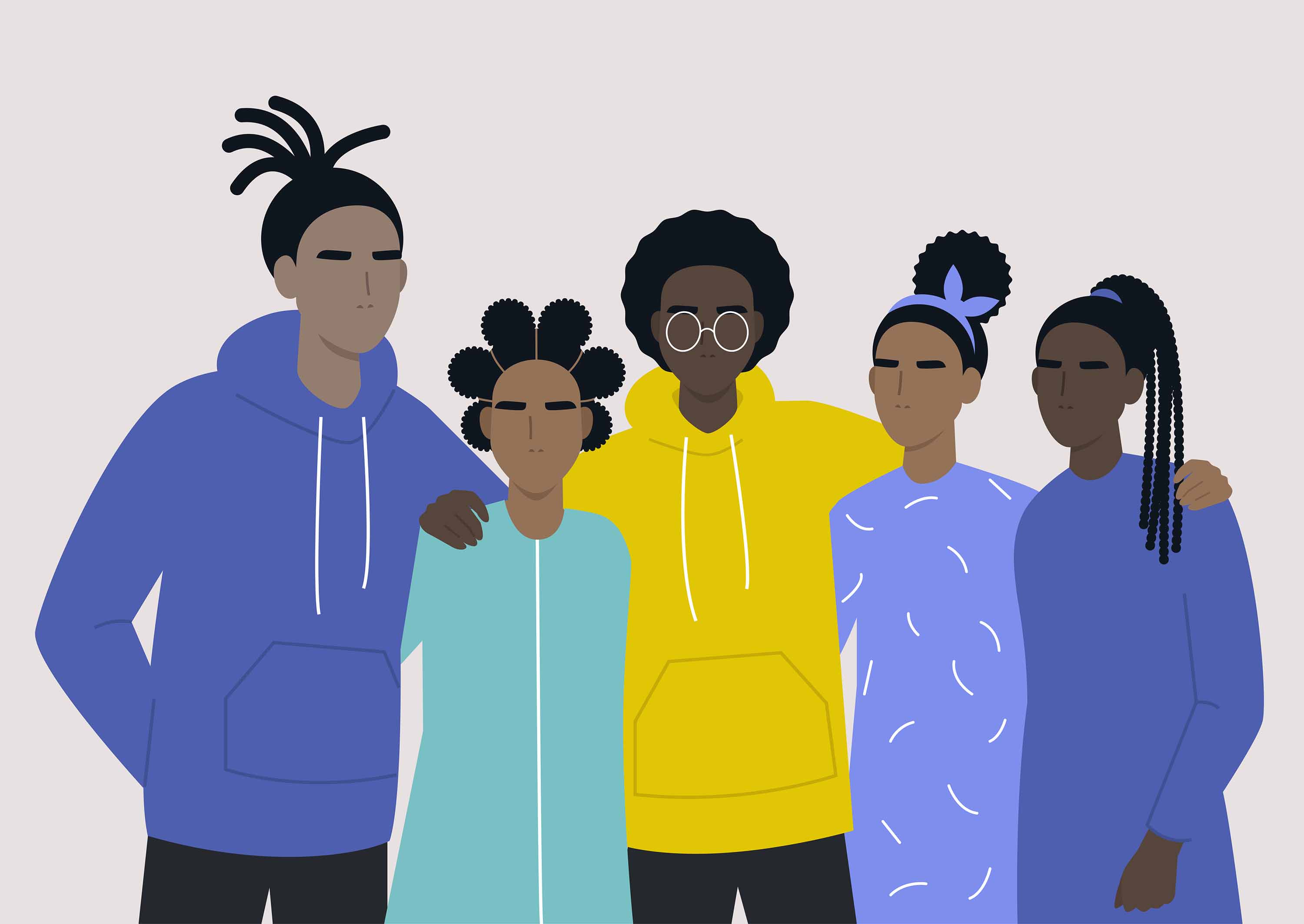
Growing Appreciation For Black Hair Heritage
Filed Under: Multicultural, Youth & Family

Mary McIlrath
Senior Vice President, C+R Alum
We’ve long said that Gen Z is dedicated to inclusion. They’ve taken to protesting racial injustice since 2016, when students staged walkouts and sit-ins in support of people who were told to “go back where they came from” in a nation of immigrants. They’ve rallied around their LGBTQ+ friends to defend their basic liberties like which restroom they can use. This is the most politically

active generation we’ve seen since the teens’ grandparents were protesting the Vietnam War.
A full 84% of youth ages 6-18 agree that “it is important to accept people of different racial or ethnic backgrounds*.” When asked about the most important social causes to them, 38% of youth choose racial equality/treating each other the same regardless of skin color, with no significant differences across the ethnic spectrum of those responding.* This is a generation geared up to promote equal opportunities for their peers of all backgrounds.
It’s worth noting that not so long ago in Massachusetts and Louisiana, Black girls were sent home from school for wearing braided hair extensions. Administrators have been enforcing policies, perhaps written before many Black students walked their halls, that ban the styles. For a moment let’s overlook the inherent sexism of prohibiting hair extensions for girls as “distracting” in the classroom—this is a cultural issue. Beyond being practical, i.e., allowing Black children to swim at school without lengthy follow-up hair care at home every night, braided extensions are an expression of Black culture. Denying this became the newest form of discrimination. How mortifying for an innocent young girl to be humiliated and sent home for something she was excited to display to her friends. Boys were not immune from this kind of exclusion as well, with an 11-year-old being suspended for wearing his braids. In 2019, a video went viral of a teenager from New Jersey who was forced to cut off his locs in order to compete in his wrestling match.

We’re glad to report that in the last few years, some states are joining the fight eliminate hair bias through the passing of legislation. The CROWN (Creating a Respectful and Open World for Natural Hair) Act has passed in 13 states, first in California in 2019. If you live there, or in Colorado, Connecticut, Delaware, Maryland, Nebraska, New Jersey, Nevada, New Mexico, New York, Illinois, Oregon, Virginia, or Washington, you’re safe to wear your hair in natural and culturally relevant styles in the workplace and at school.
OUR POV:
Today’s youth are more accepting of others and their expression of cultural individuality. Smart brands will recognize this and support culturally-relevant initiatives and promote inclusion.
*Source: YouthBeat Jan-June 2021
explore featured
Case studies
